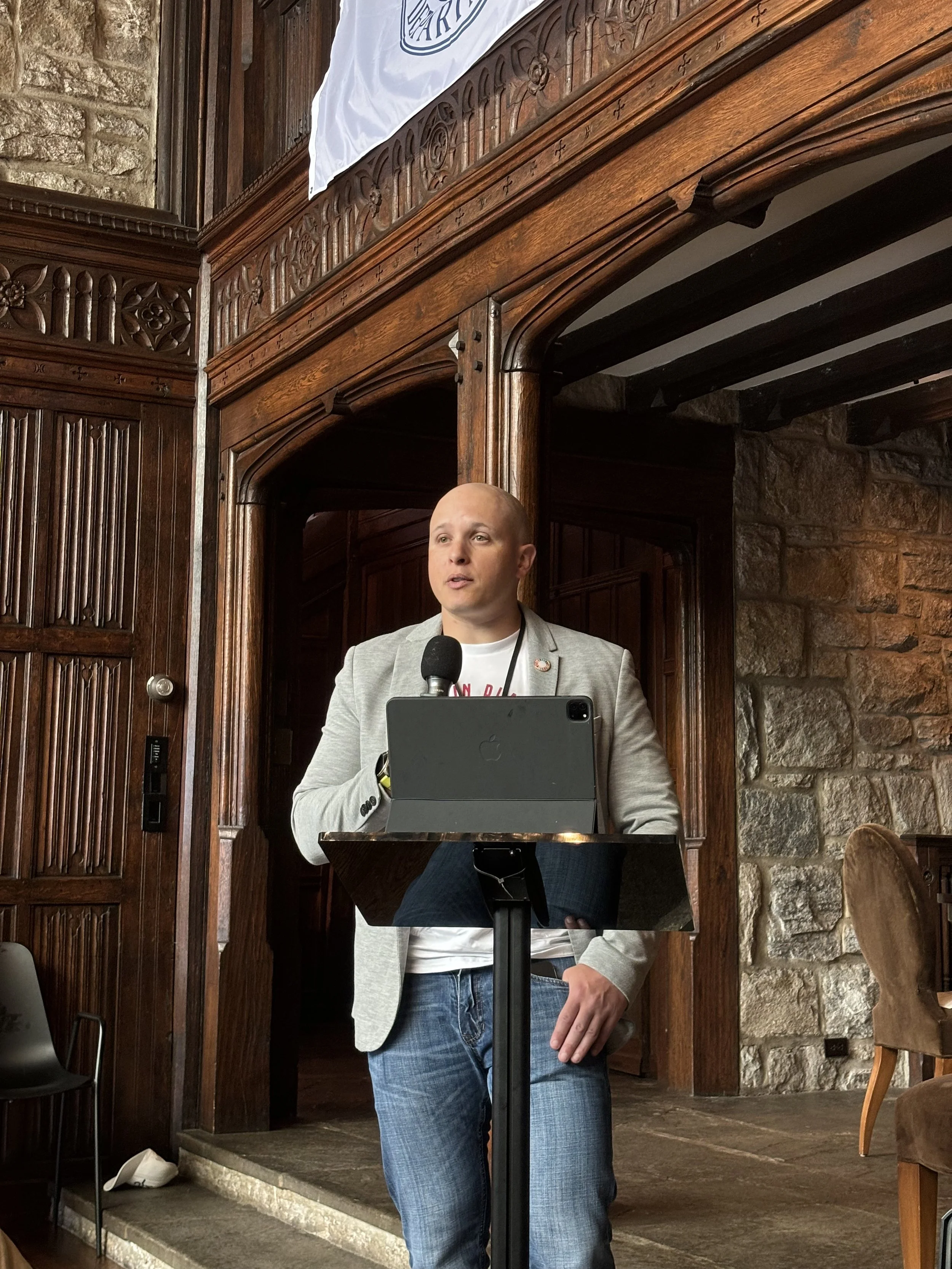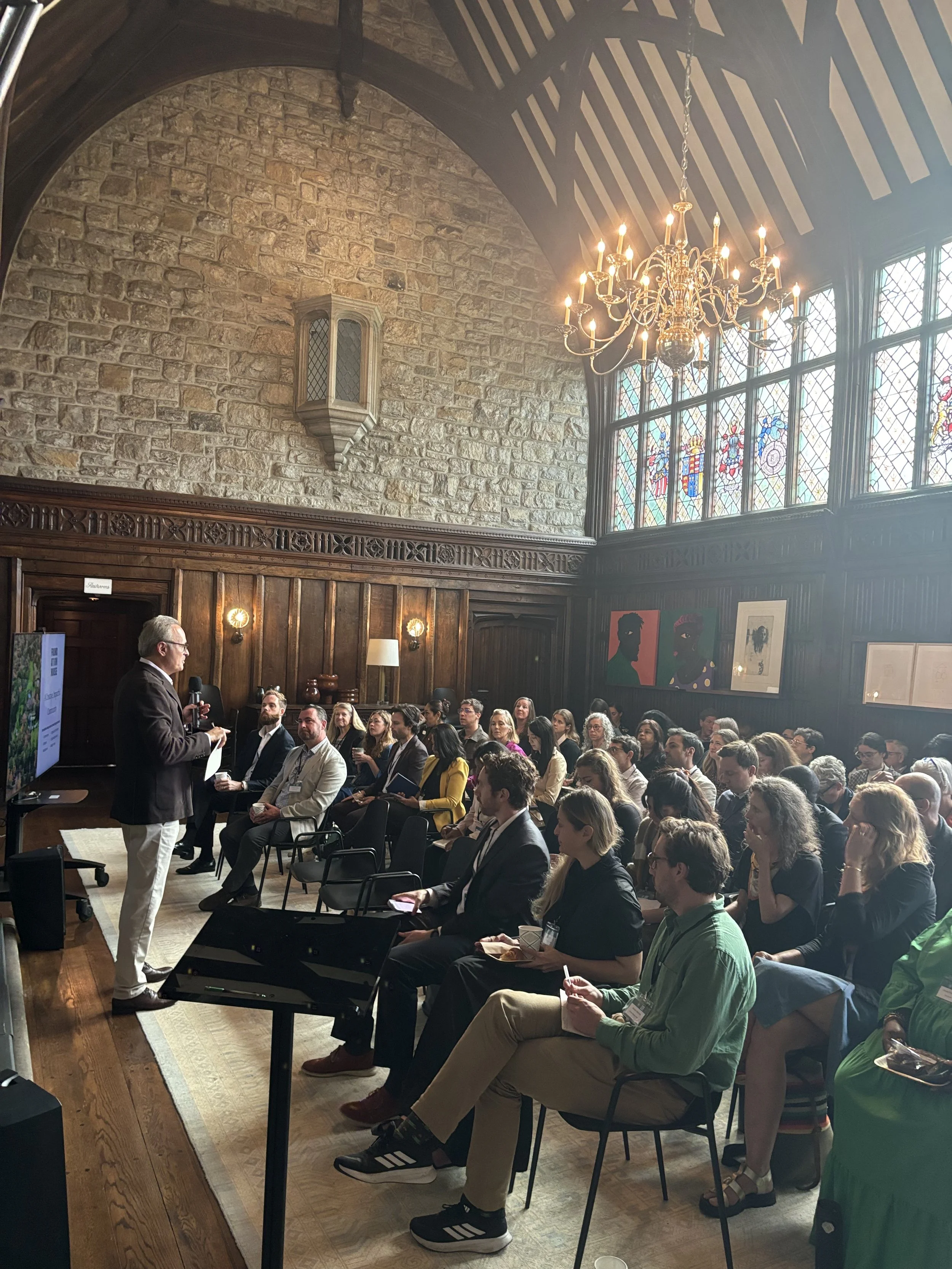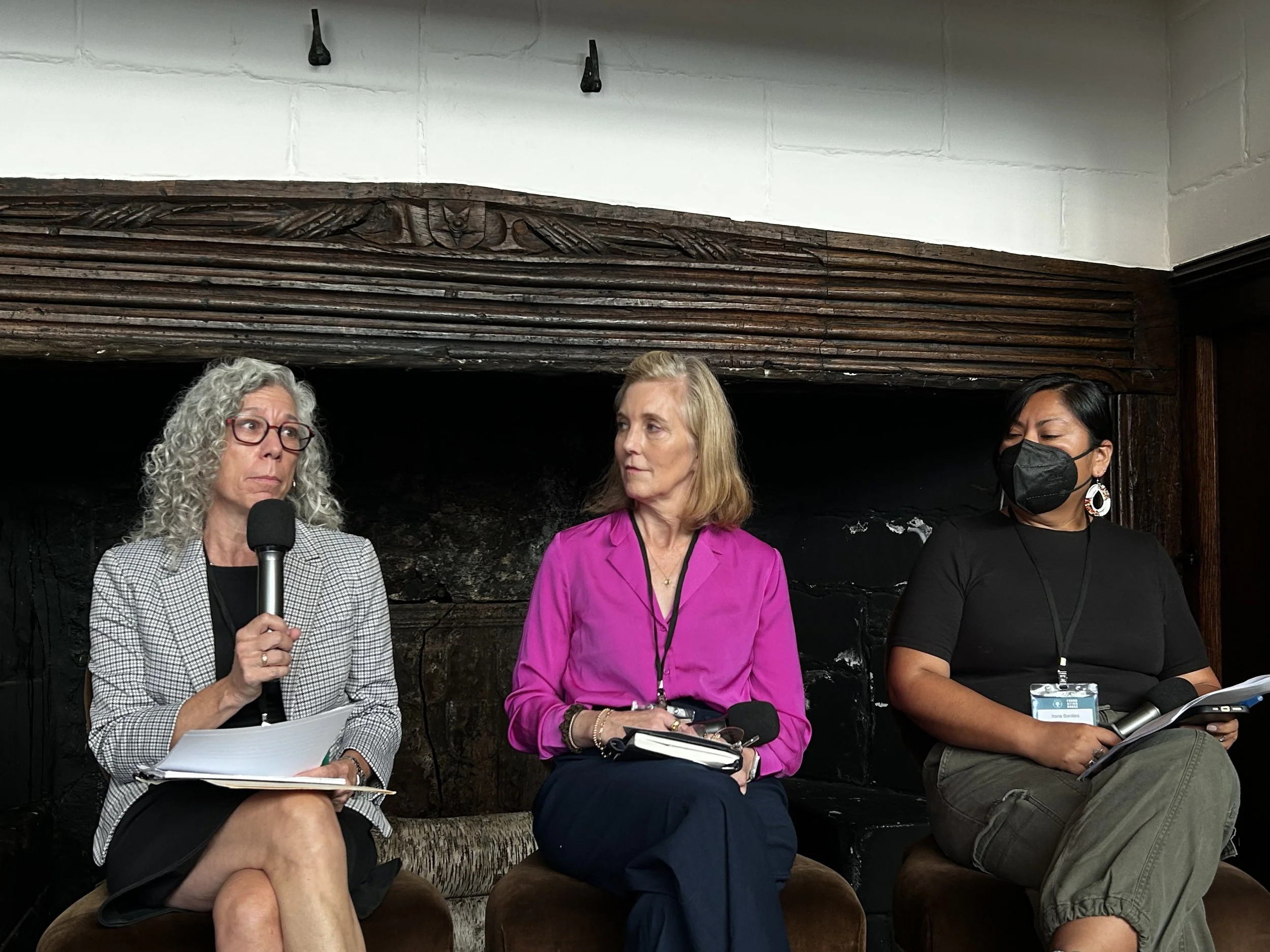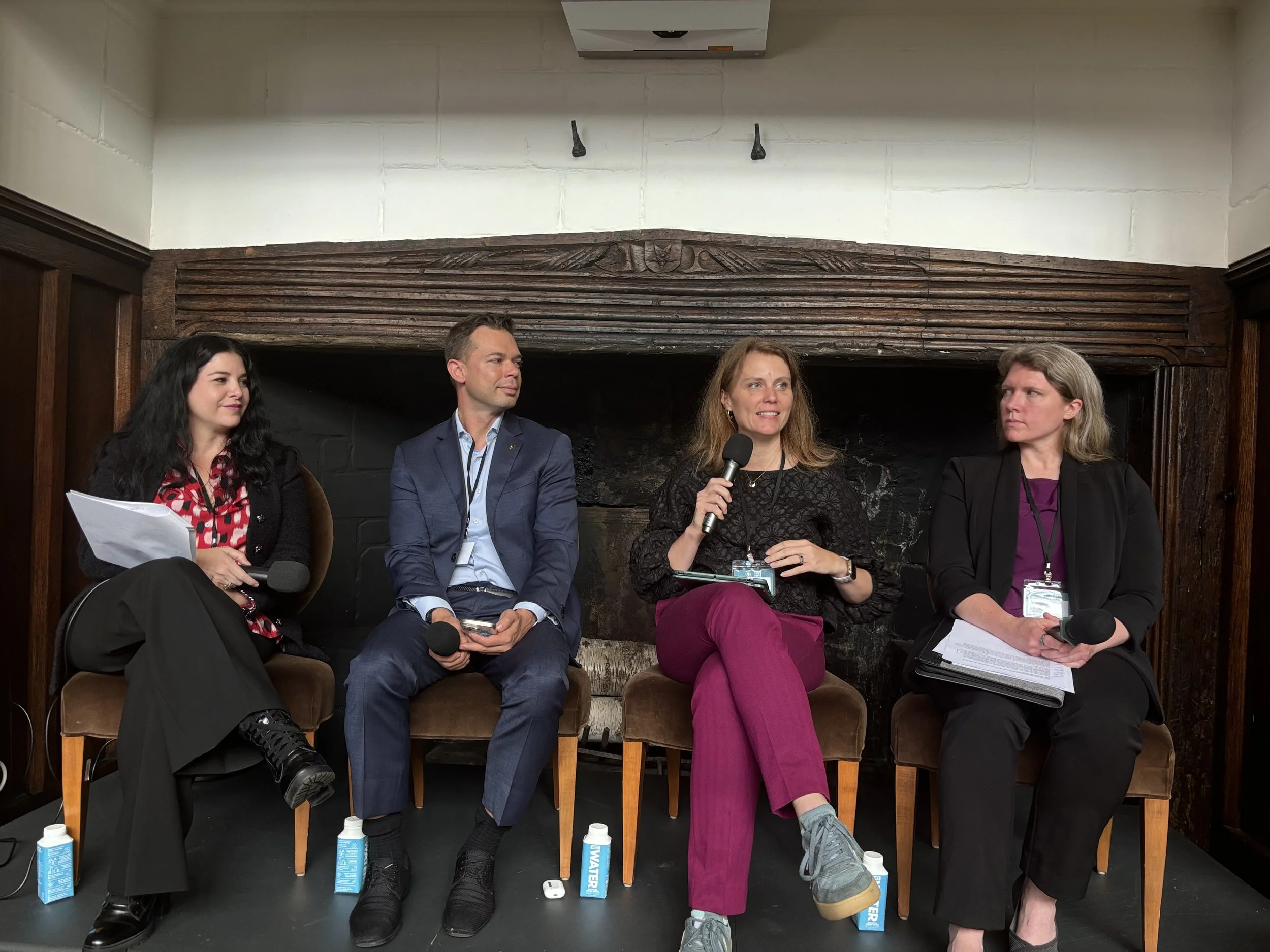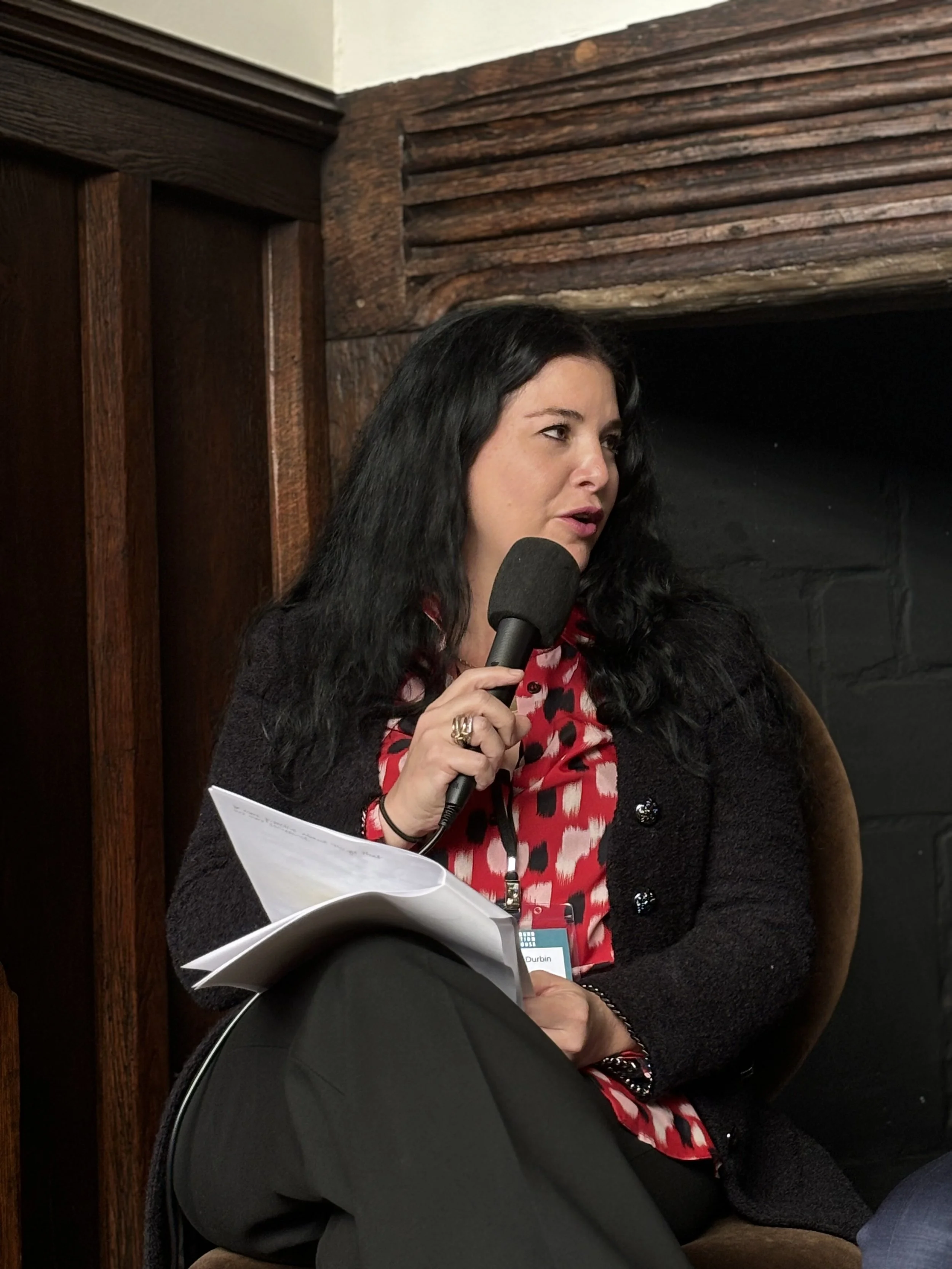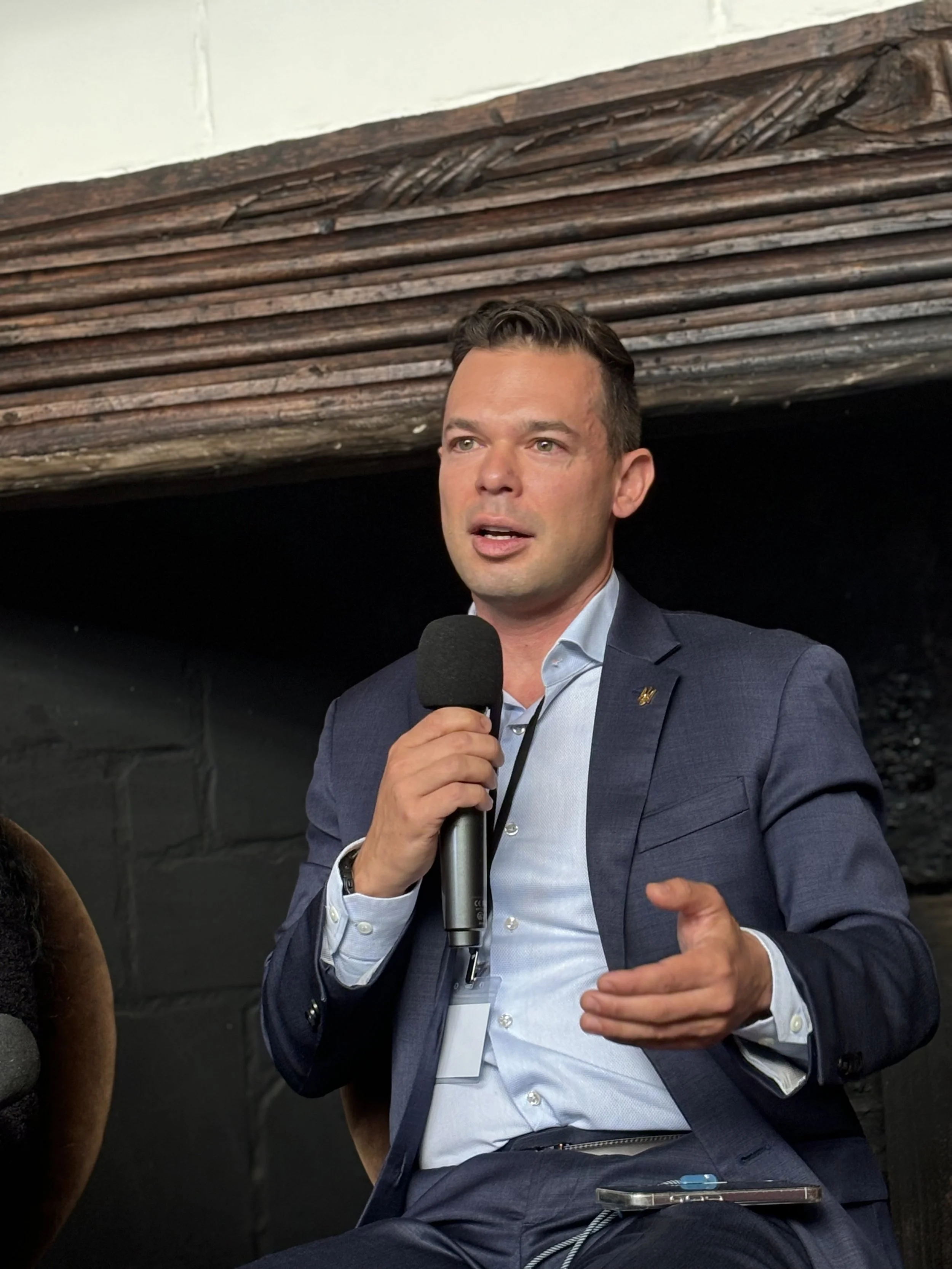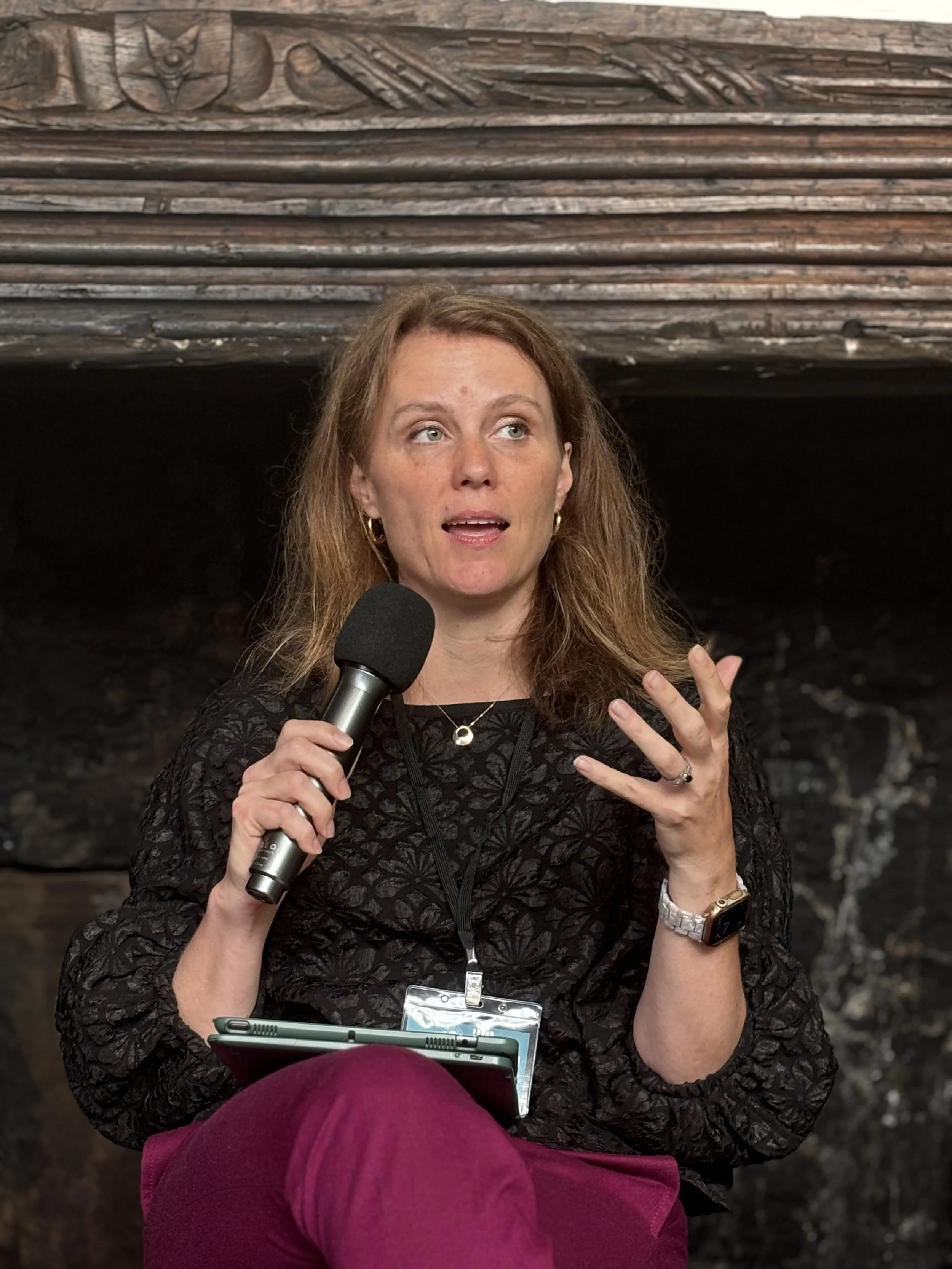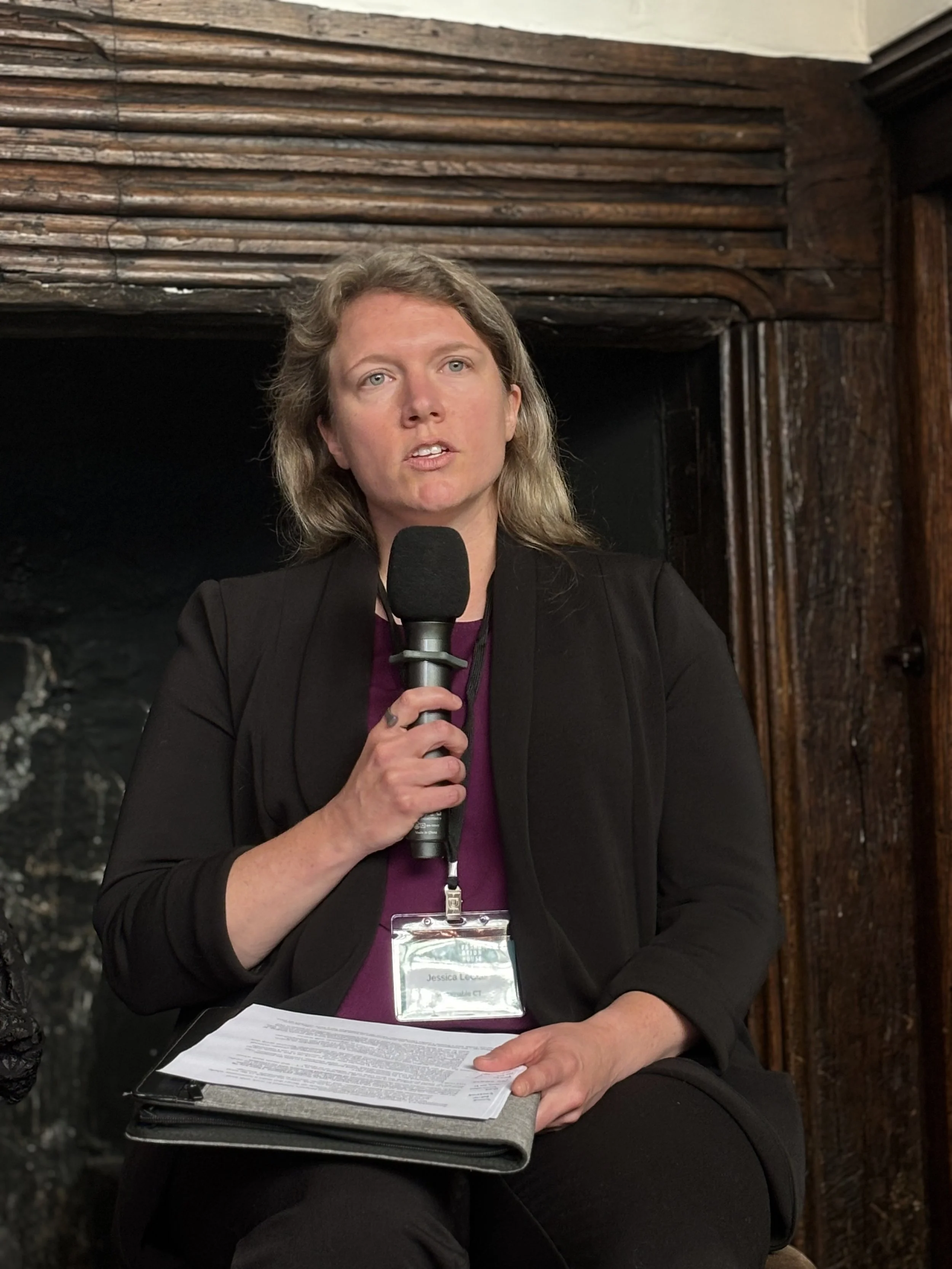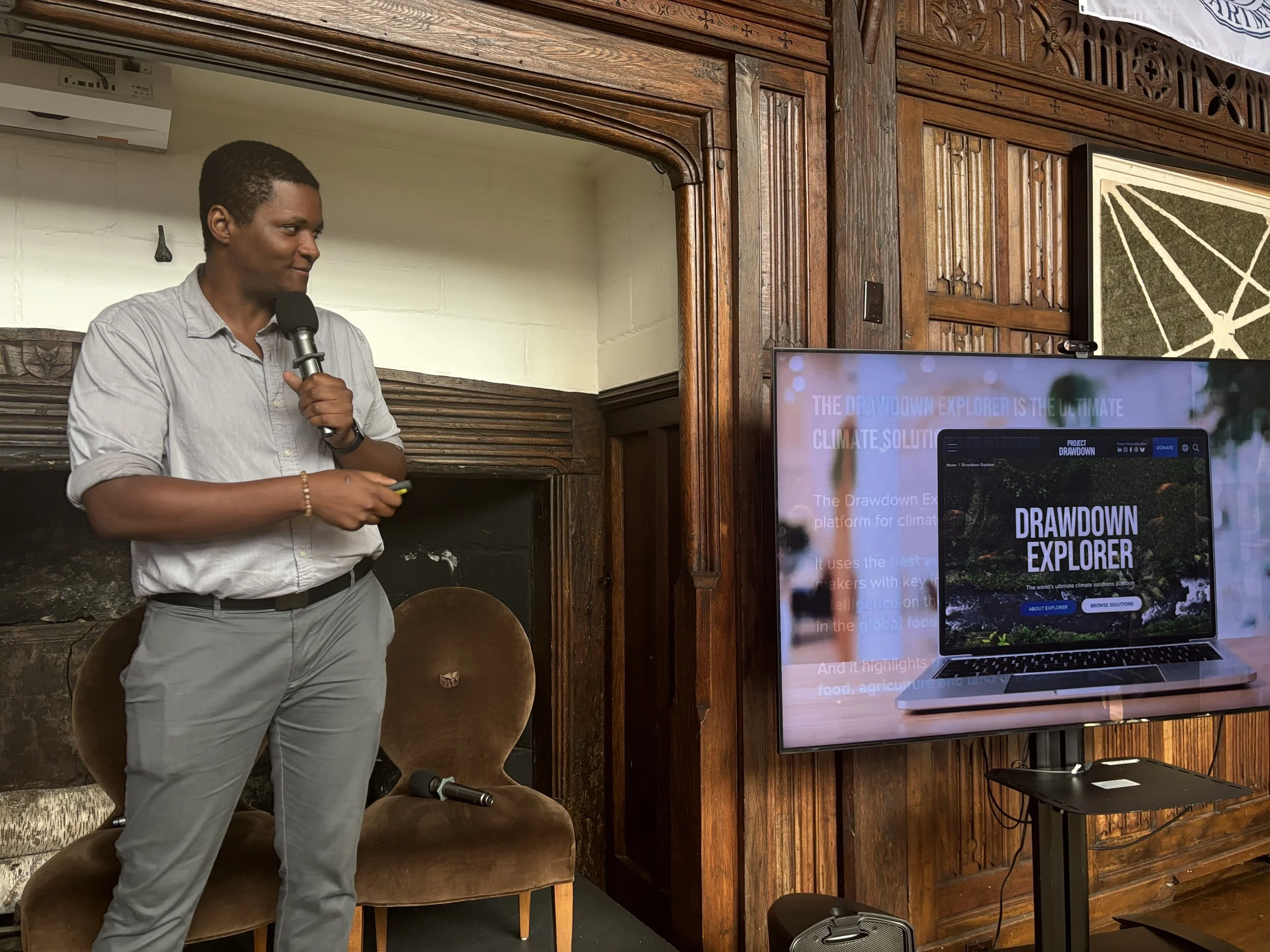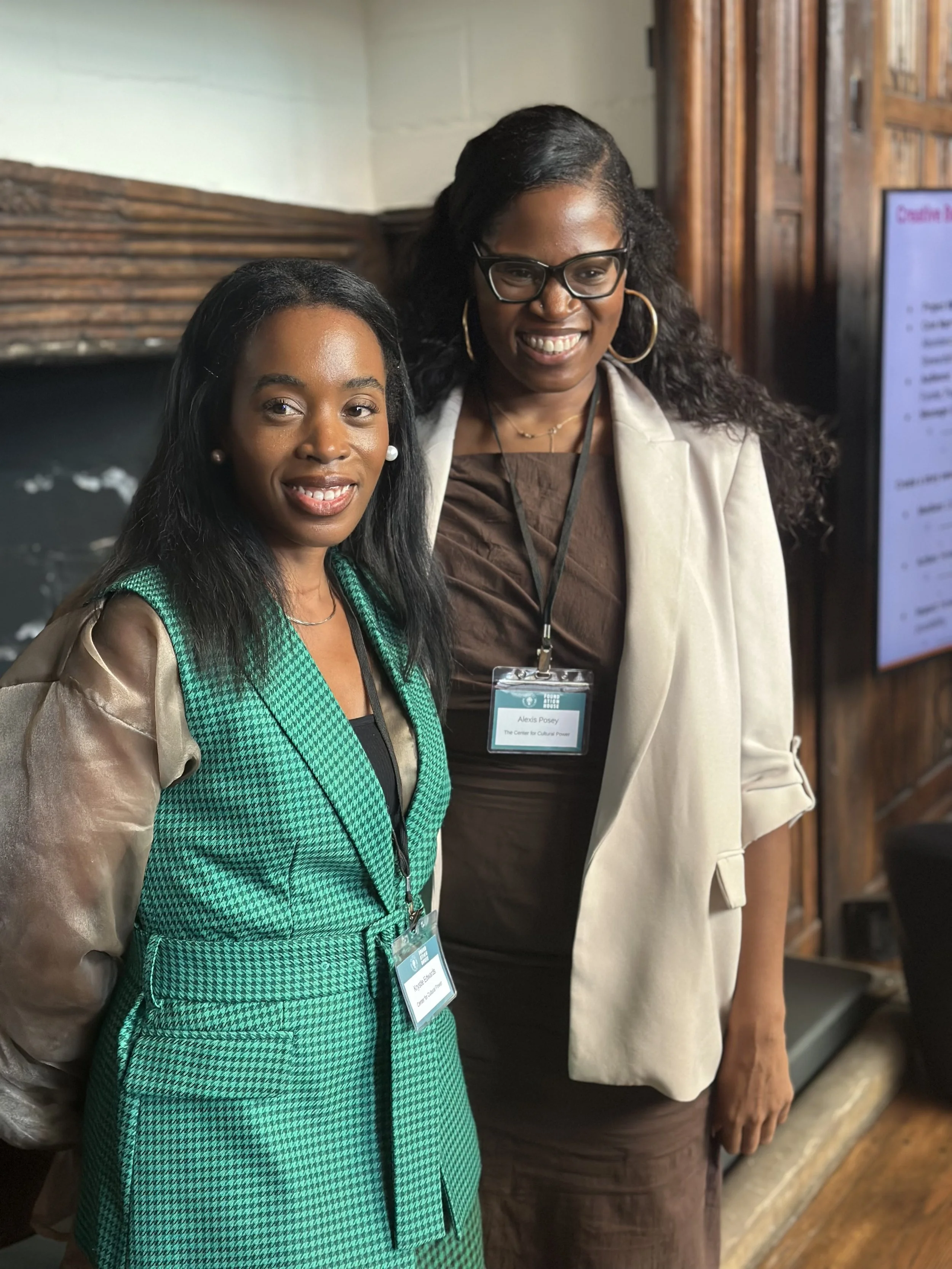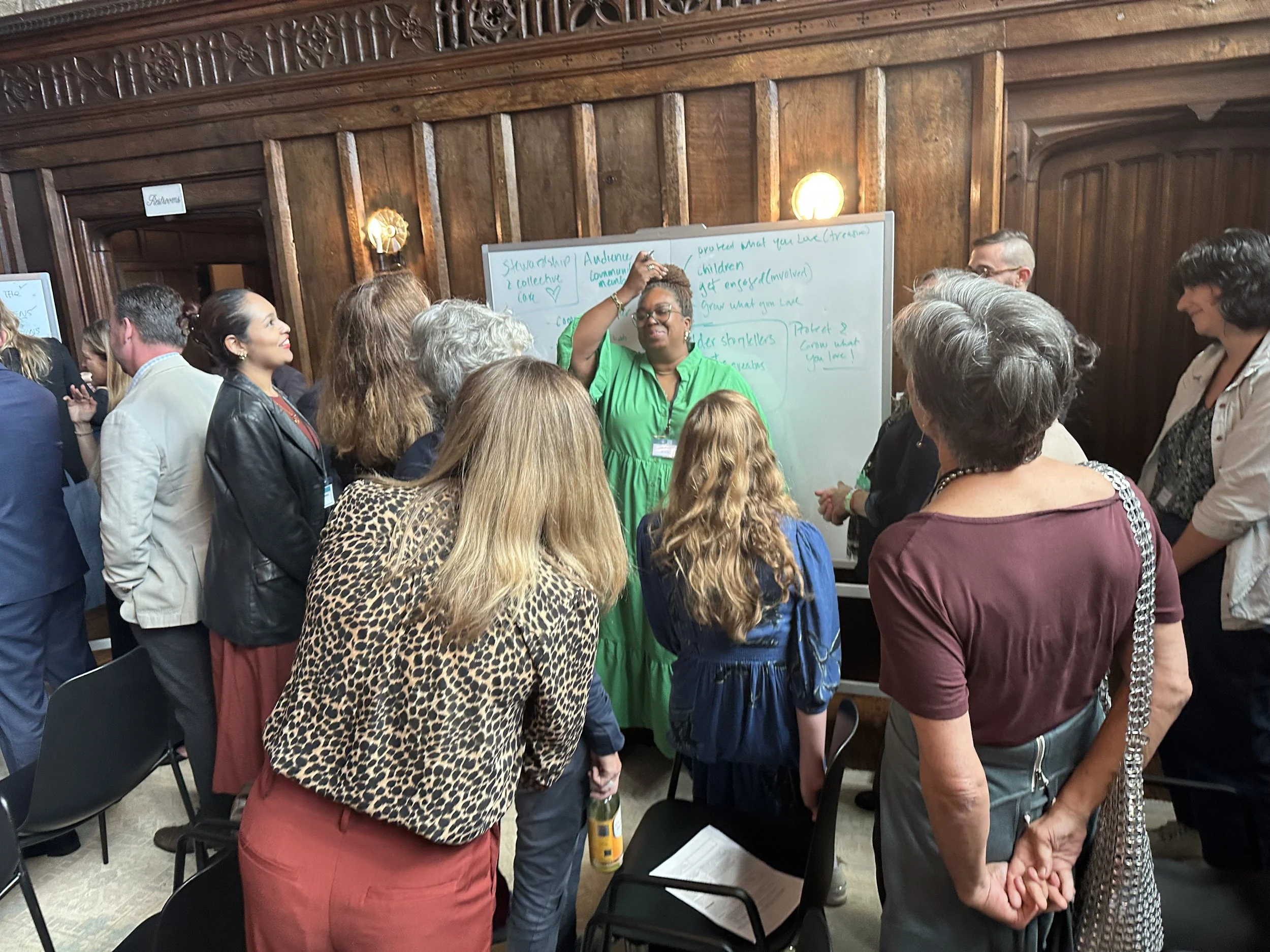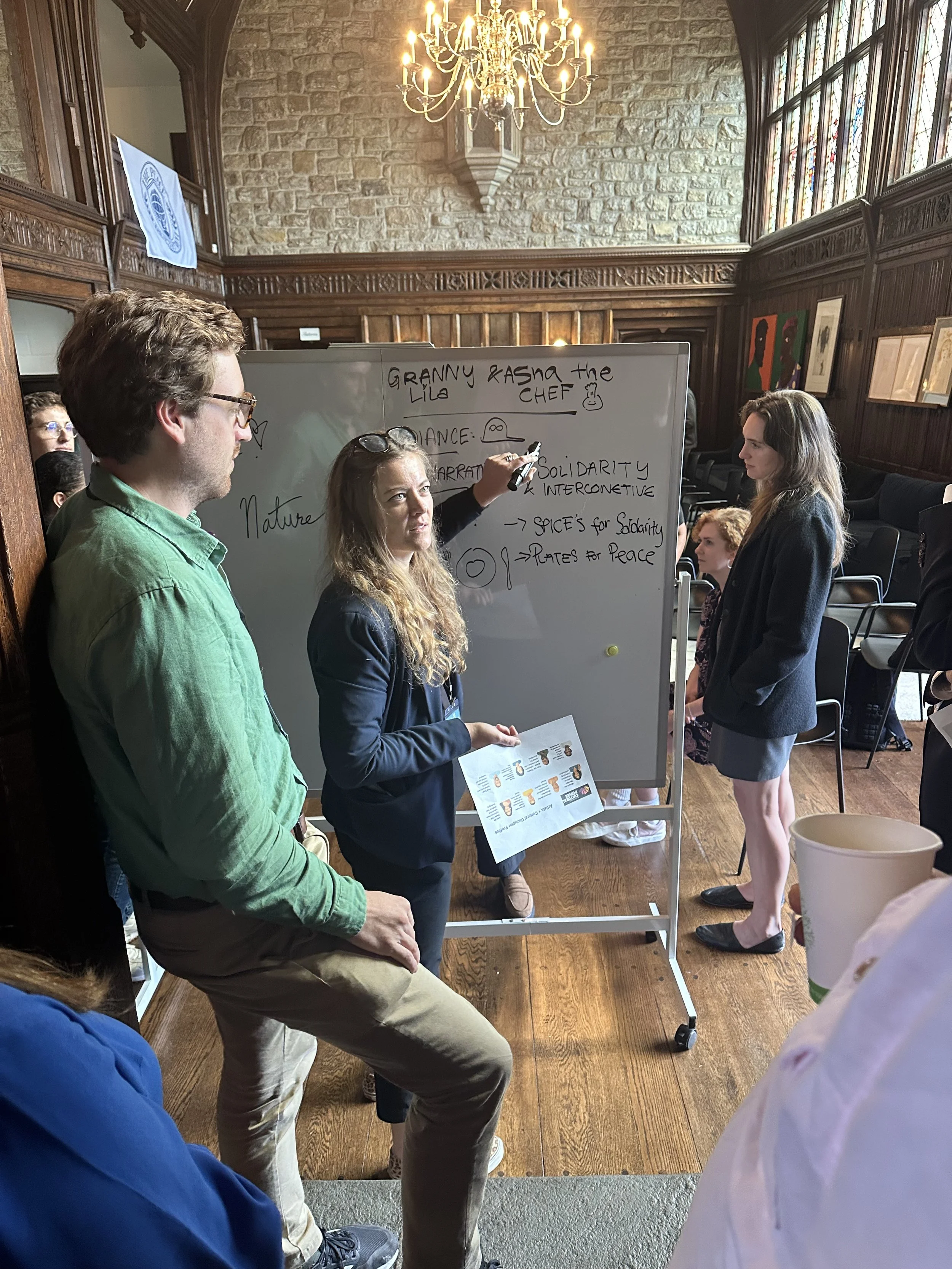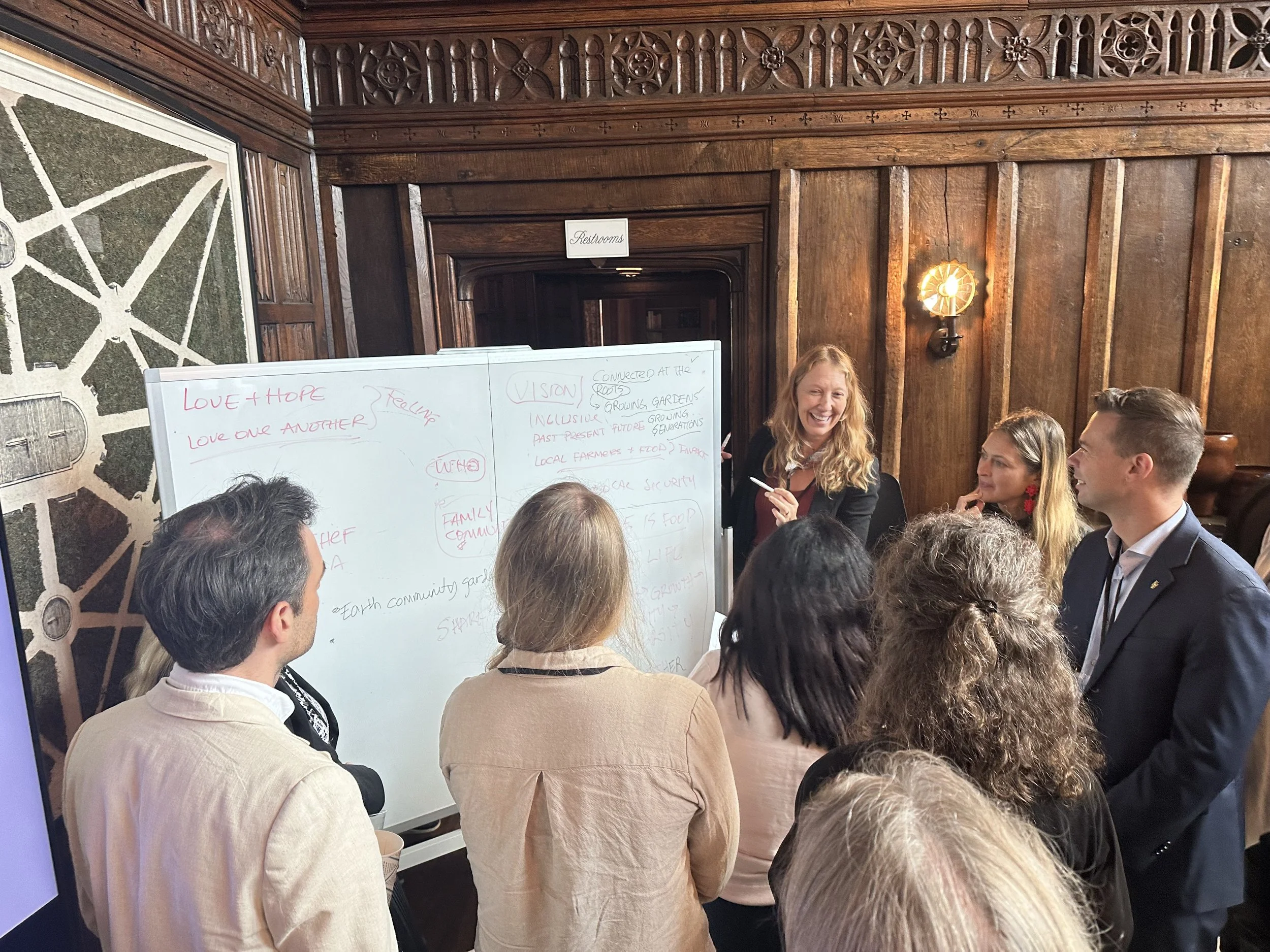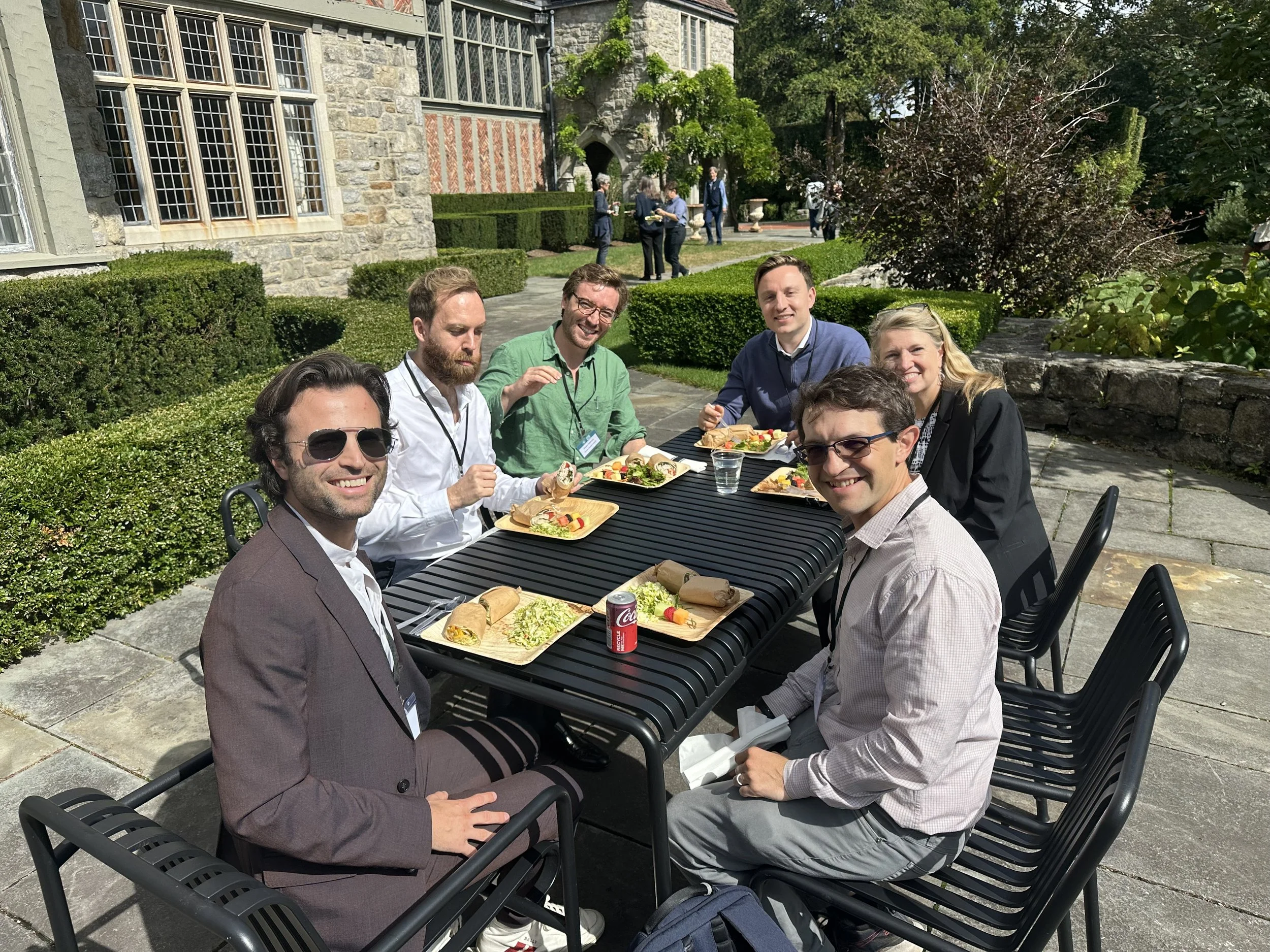Climate Week NYC: Climate & Conflict
Our fourth annual Climate & Conflict, co-hosted by Foundation House, convened a diverse group of grassroots community leaders, policy experts, cultural strategists, funders and investors, and the public at large at a pivotal moment—as federal climate policy rollbacks threaten progress on environmental justice and the green transition. The event opened with a call to recognize how systemic dysfunction and scarcity drive conflict, and how building healthy, resilient communities is essential for peace and security. The day fostered candid discussion, cross-sector collaboration, and creative problem-solving, with renewed focus on subnational action and collective responsibility.
IMPACT
The opening keynote framed the scope of current challenges: EPA defunding, agency dismantling, grant rescissions reversing infrastructure and community uplift programs, and the weaponization of climate denialism. Discussions explored how these rollbacks disproportionately harm frontline and fenceline communities in both red and blue states, undermining economic, climate, and national security. Panelists emphasized defending progress through impact litigation, coalition-building, and effective storytelling while preparing for continued federal hostility.
Attention shifted to practical solutions emerging at subnational and hyperlocal levels. Speakers showcased how municipalities, states, and regional coalitions are advancing climate action despite federal headwinds, through innovative organizing models, blended finance, place-based partnerships, and community-driven projects. The pragmatic, often nonpartisan nature of these efforts demonstrates their resilience. Panelists highlighted the critical role of creative funding mechanisms and cross-sector collaboration in sustaining momentum when federal support disappears.
An interactive workshop on narrative change revealed how art, storytelling, and cultural engagement can counter doom-and-gloom messaging that has inadvertently stalled the movement. By reframing climate action around community, possibility, joy, and shared prosperity rather than catastrophe, communicators can welcome new participants and build broader coalitions. Participants practiced using these tools to shift attitudes and inspire hope.
INITIATIVES
The conference concluded with a collective call to action:
Support place-based initiatives addressing both climate and community needs through creative funding and coalition models
Defend environmental protections and advance climate justice through litigation and advocacy, centering frontline communities
Invest in narrative and cultural strategies that shift public perception from fatalism to possibility
Leverage local leaders' expertise and cross-sector partnerships to implement solutions and fill federal gaps
Encourage funders and investors to support innovation helping communities navigate policy uncertainties
Participants left with renewed purpose, committed to deepening collaboration, taking concrete steps toward a more just and resilient future, and multiplying these messages within their own networks and communities.
For more details on the speakers and agenda, visit the event page.
At The Peace Department, we're actively building partnerships to advance these key takeaways. We believe that by working together, we can build the collaborative power necessary to tackle our most complex climate challenges.
Want to learn more about our work or explore a partnership? Please reach out to us through our contact form.
